Next month's gathering of oil ministers from OPEC and non-member countries is fixating traders. But the real re-balancing in the market is already underway -- and much of it is taking the form of involuntary production cuts from OPEC members.
Speculation that the meeting in Doha will lead to a production freeze has been a boon for oil, helping to drive a 40% rise in Brent since the idea was first mooted just over a month ago, to more than $42 a barrel.
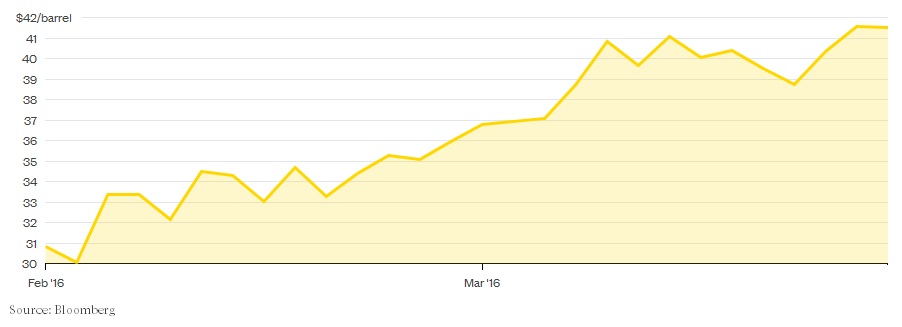
But a freeze would be empty gesture. None of the countries that intend to take part, with the possible exception of Saudi Arabia, was expected to raise production in any case.
Most OPEC countries are already producing at capacity, while output in Russia, the biggest producer outside OPEC, is expected to fall over the course of 2016 as ageing West Siberian deposits aren't replaced.
Iran, the only country expected to raise output significantly this year, has said it will only freeze output once it has reached 4 million barrels per day. It is currently producing about 3 million barrels after sanctions on its oil exports were eased in January.
Saudi Arabia might be expected to raise production in the summer, when peak seasonal electricity demand will boost the amount of crude oil burned in power stations by as much as 600,000 barrels per day from the current level. However, the kingdom had 314 million barrels in storage at the end of January -- enough to maintain sales throughout the summer without boosting output.
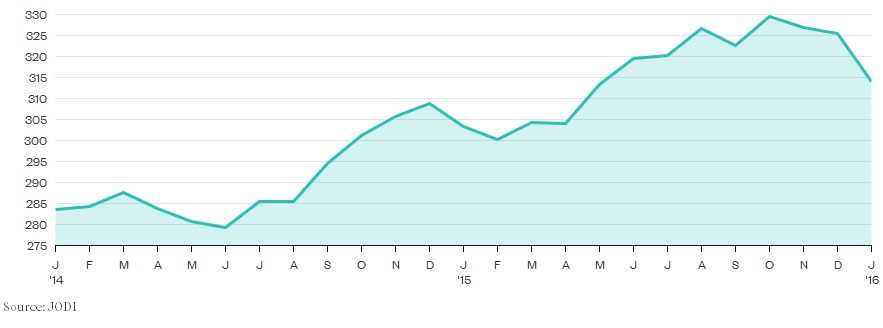
Global oil production has fallen by 1.37 million barrels per day over the past six months, with OPEC production accounting for nearly half of that decline.
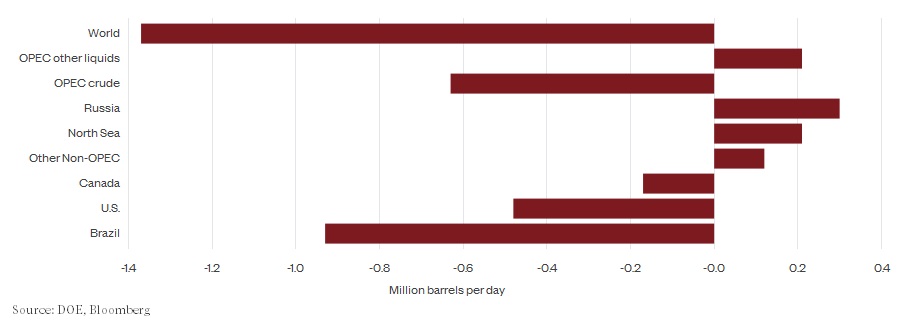
Nigeria revised its official January production number downwards by 192,000 barrels a day in its latest submission to OPEC. It then lost another 300,000 barrels per day in mid-February, following the closure by Shell of the Forcados export system after damage to a pipeline. Meanwhile, the government is sending more troops to protect Niger Delta oil facilities in the face of rising discontent that could see more disruptions to come.
The Kurdistan Region of Iraq was forced to halt exports for almost a month after its pipeline to the Mediterranean coast was shut for reasons that remain unclear. More importantly, no sooner was the flow restored than the Iraqi government in Baghdad suspended around 150,000 barrels per day of exports through the line from Kirkuk and other northern fields it still controls. Unless that decision is reversed -- which Baghdad says will require a new agreement with the Kurdistan Regional Government -- Iraq's output will fall by a similar amount, as there is nowhere else for that oil to go.
The Kurds are also suffering falling output from their own fields. Genel Energy downgraded the reserves at its Taq Taq field by nearly 50 percent and has seen production there fall from 135,000 barrels per day to 85,000 barrels a day over 2015, with further declines expected this year and next.
OPEC founder-member Venezuela, a prime campaigner for the output freeze, has also been hit hard as falling prices forced state-owned Petroleos de Venezuela to cut capital spending. Official production data show output down 165,000 barrels per day, or 6 percent, since OPEC commenced its current war on high-cost oil in November 2014.
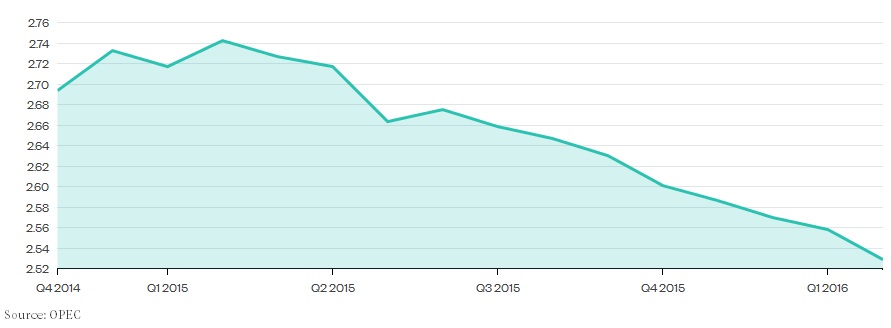
With new production from the deep waters off Angola and Nigeria delayed as a result of the fall in prices, the involuntary output declines from OPEC countries are likely to gather pace. That will make the planned output freeze redundant.
*Julian Lee is a Bloomberg First Word oil strategist. His opinions are his own and aren't intended as investment advice.
(ww.bloomberg.com, March 20, 2016)
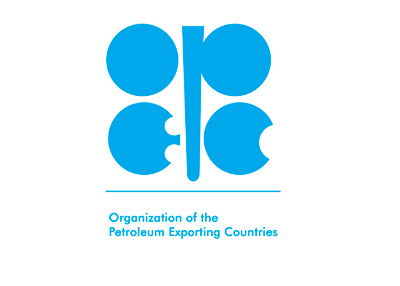 by Julian Lee*
by Julian Lee*



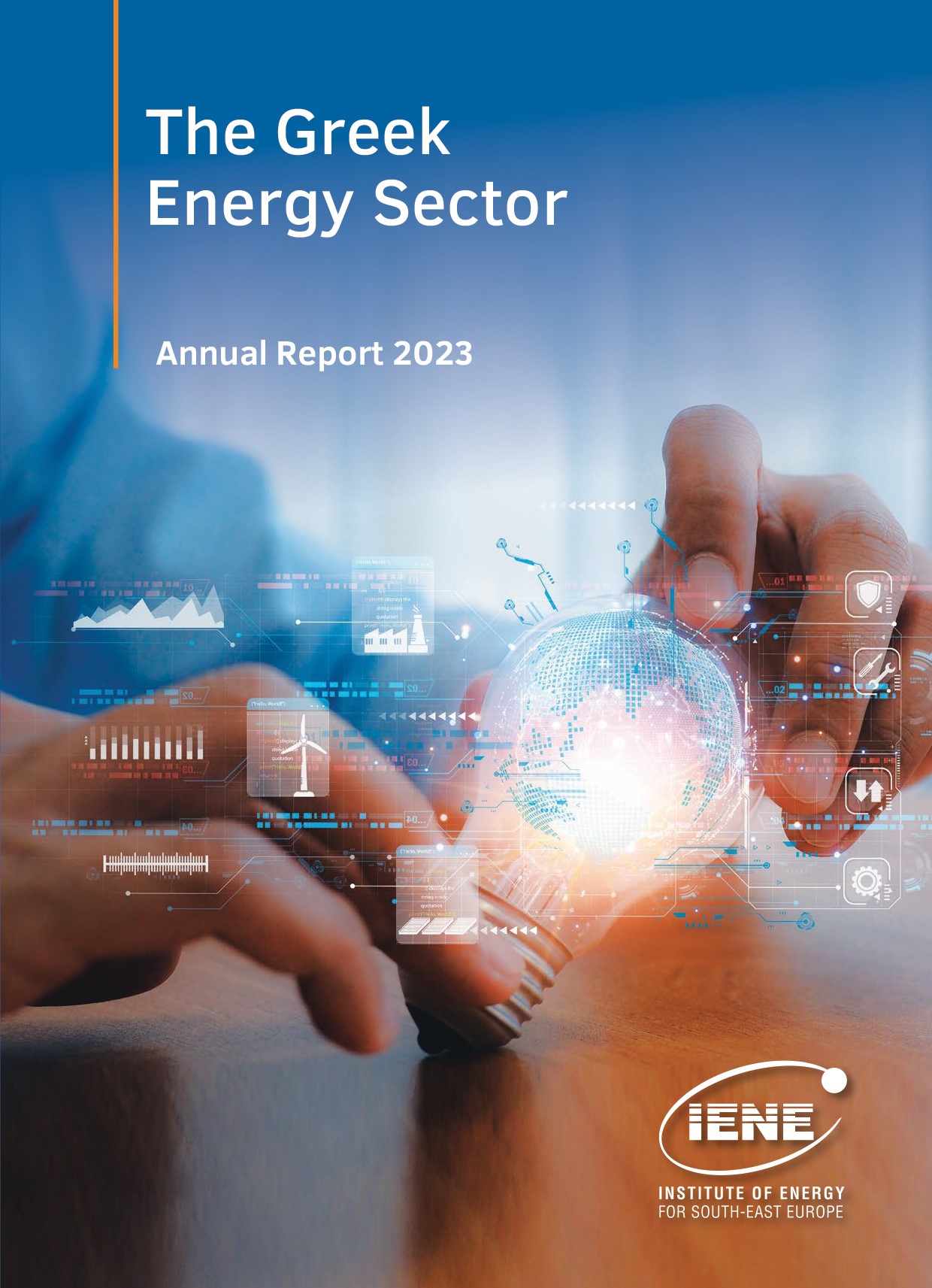

 More
More









